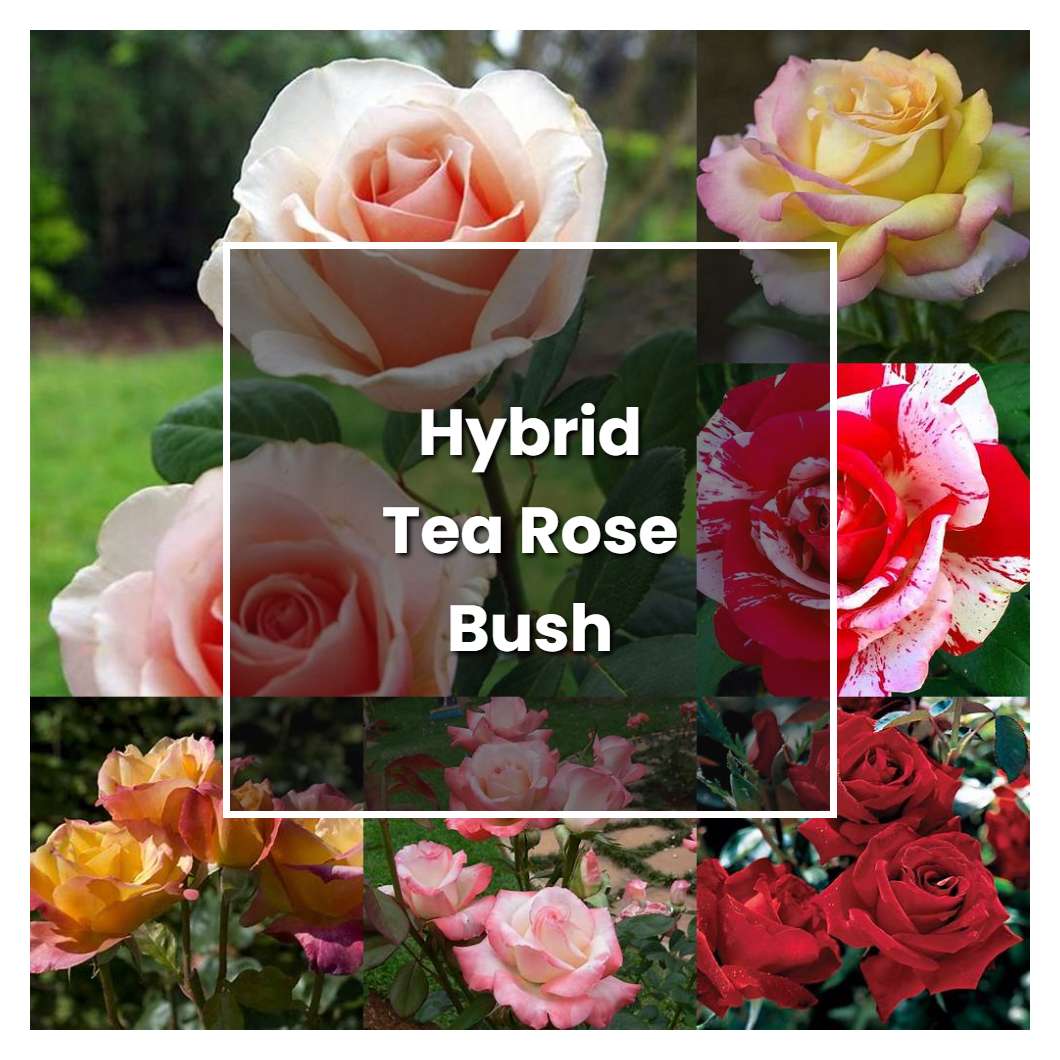Hybrid tea rose bush is a plant that is known for its beautiful flowers. The flowers of this plant are very fragrant and they come in a variety of colors. This plant is very easy to grow and it does not require a lot of care.

Related plant:
Deutzia Hybrida
About soil condition, a hybrid tea rose bush needs well-drained, loamy soil that is rich in organic matter. The soil should be moist but not soggy. To prepare the soil, till to a depth of about 12 inches and mix in 2 to 4 inches of compost.
Similar to other roses, hybrid tea roses need lots of sun to thrive. At least six hours of sunlight a day is ideal, although they can tolerate a little less. If you live in a hot climate, though, you may need to give them some afternoon shade to prevent sunburn.
The temperature condition that is best for hybrid tea rose bush is warm weather. This type of rose bush can withstand temperatures as low as 50 degrees Fahrenheit. However, it is important to note that the bush will not bloom properly if the temperature gets too cold. The ideal temperature range for hybrid tea rose bush is between 60 and 70 degrees Fahrenheit.
Ideal humidity condition for this plant is 50%. If the humidity is too low, the leaves will start to turn brown and fall off. If the humidity is too high, the leaves will start to turn yellow and fall off.
Discussing fertilizer, usually the plant food is separated into three categories which are Primary Macronutrients, Secondary Macronutrients, and Micronutrients. Macronutrients are nitrogen (N), phosphorus (P), and potassium (K) and these are considered the building blocks of a plant. The secondary macronutrients are calcium (Ca), magnesium (Mg), and sulfur (S). All of these elements are necessary for the plant to grow, but in smaller quantities than the primary macronutrients. The micronutrients are iron (Fe), manganese (Mn), boron (B), copper (Cu), zinc (Zn), molybdenum (Mo), and chlorine (Cl). All of these nutrients are important to the plant, but in very small quantities. When it comes to fertilizing a hybrid tea rose bush, it is important to use a fertilizer that is high in nitrogen. This is because nitrogen is responsible for the growth of the leaves and the green coloration of the plant. Phosphorus is important for the development of the roots and the blooms, while potassium is important for the overall health of the plant. It is recommended to use a fertilizer with a ratio of 10-10-10 or 20-20-20 when fertilizing a hybrid tea rose bush.
Pruning your hybrid tea rose bush is an important part of keeping it healthy and looking its best. remove any dead or diseased wood, as well as any crossed, weak, or rubbing branches. Cut back any overly long or leggy stems, and thin out crowded areas to improve air circulation. Doing this will encourage new growth and encourage your rose bush to produce more flowers.
Propagation is the process of creating new plants from existing ones. Hybrid tea rose bushes can be propagated from stem cuttings taken from the parent plant. The stem cuttings should be taken from healthy, new growth and should be about 6 inches long. The bottom 2 inches of the stem cutting should be buried in a potting mix made up of equal parts peat moss, perlite, and sand. The pot should be kept moist and in a warm place until new growth appears.
Usually, the plant growth rate is considered fast. New leaves will emerge quickly, and the bush will continue to grow in size. Many people find that their hybrid tea rose bush will flower profusely in the spring and summer, with fewer blooms in the fall and winter.
Common problems for this kind of plant are black spot, powdery mildew, rust, canker and Japanese beetles. The black spot is a fungus that appears as black spots on the leaves of the plant. The powdery mildew is a fungus that appears as white powder on the leaves of the plant. The rust is a fungus that appears as orange or brown spots on the leaves of the plant. The canker is a bacteria that attacks the roots of the plant. The Japanese beetles are insects that feed on the leaves of the plant.
Source:
How should I prepare my hybrid tea roses for winter?
Roses in Georgia: Selecting and Growing Techniques
Different Kinds of Roses - University of Illinois Extension
